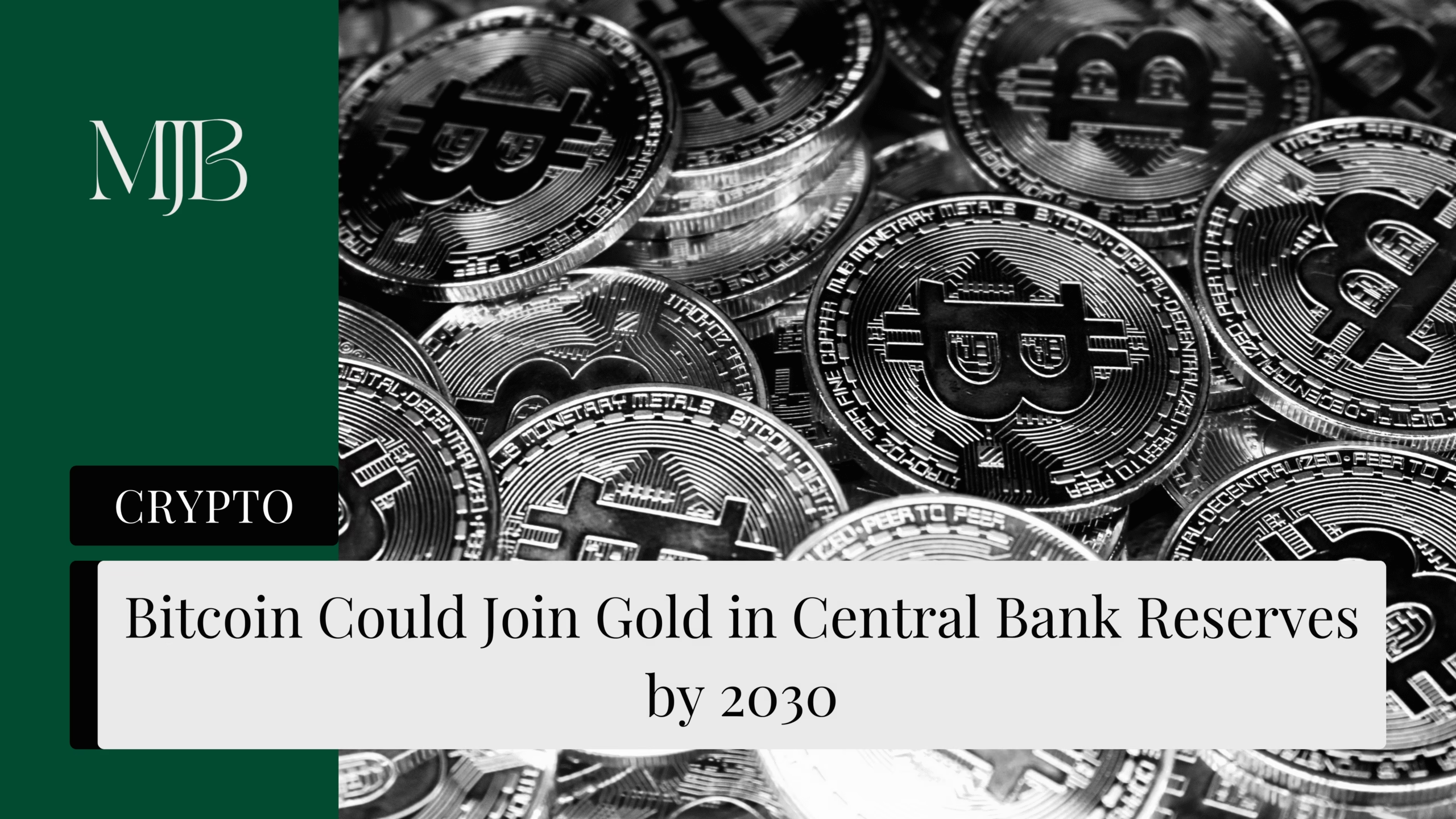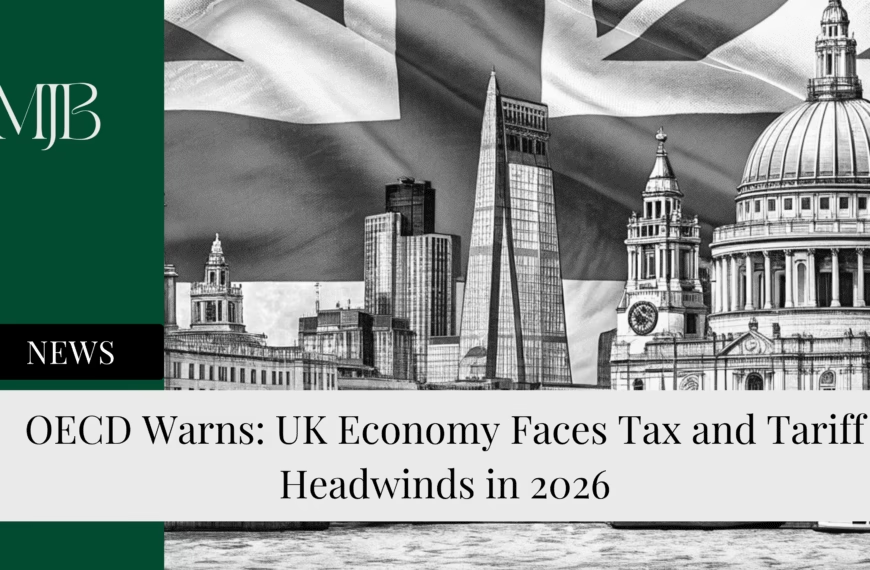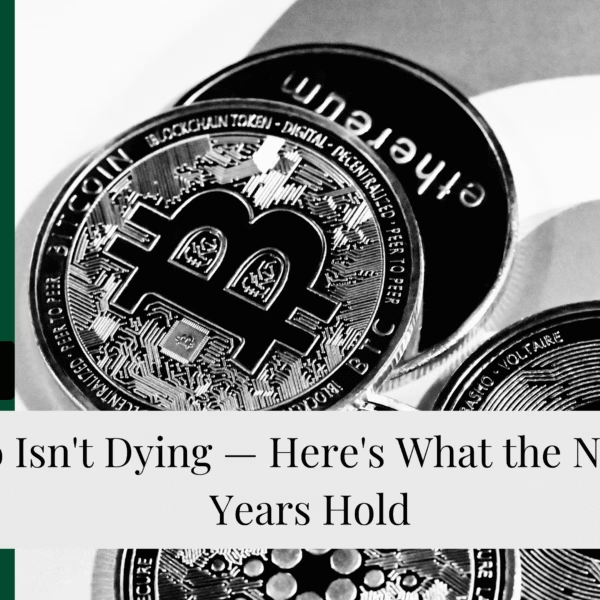Ever thought central banks might start hoarding bitcoin like they do gold? Sounds wild, but Deutsche Bank thinks it’s happening by 2030. As countries scramble to ditch their dollar dependency and bitcoin’s price swings start to chill out, the crypto could soon become a legit reserve asset sitting right next to gold bars in central bank vaults.
Here’s why this matters: if major financial institutions start treating bitcoin as a reserve currency, we’re talking about a fundamental shift in how global finance works. Let’s break down what’s driving this prediction.
Why Central Banks Are Eyeing Bitcoin as a Reserve Asset
Deutsche Bank’s strategists reckon bitcoin will “join gold in many central banks’ official reserves” within the next few years. Their logic? Central banks are desperately hunting for alternatives to the US dollar, and bitcoin checks some important boxes.
The cryptocurrency offers similar benefits to gold: it’s scarce, has low correlation with traditional assets, and acts as a hedge against inflation and geopolitical chaos. Think of it as digital gold for the modern age.
Sure, several major central banks—including those in Switzerland, Germany, and the US—have ruled out crypto reserves for now. Many have constitutional barriers blocking them. But that hasn’t stopped the broader trend of reserve diversification from accelerating.
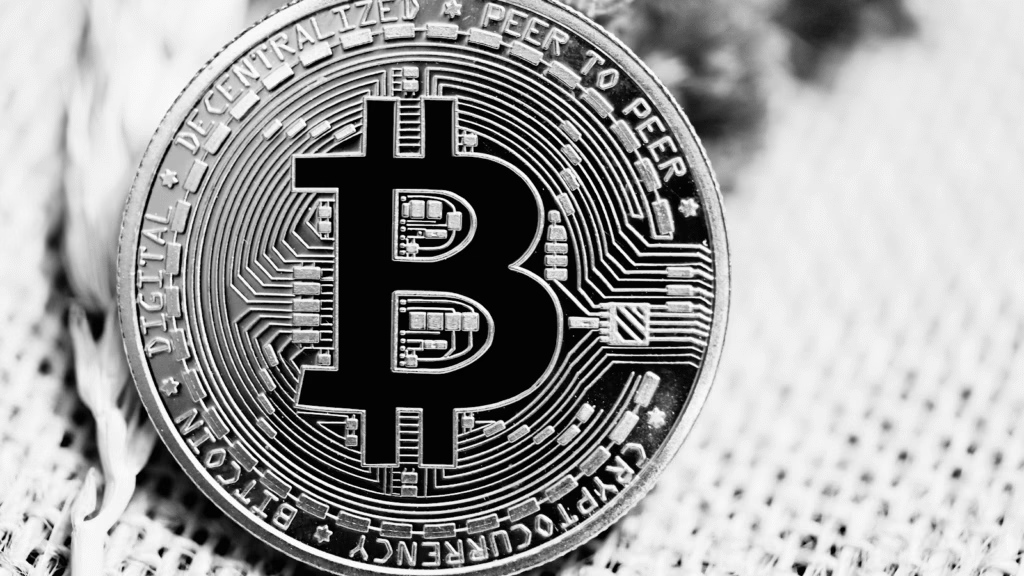
The De-Dollarisation Wave Is Real
Central banks have been buying gold like there’s no tomorrow. Purchases hit their highest levels in over 50 years, more than doubling between 2021 and 2022. Deutsche Bank expects this gold rush to push prices past $4,000 per ounce by year-end.
What’s driving this? Countries are actively moving away from the dollar. China alone slashed its US Treasury holdings by $57bn last year. Trump’s tariffs have only accelerated this de-dollarisation trend, making central banks even more eager to find liquid alternatives to American government bonds.
Both gold and bitcoin have absolutely crushed it performance-wise in 2025, benefiting directly from this dollar exodus.
Bitcoin’s Volatility Problem Is Fading
Here’s the thing that’s kept institutional investors and central banks away from crypto: those insane price swings. Bitcoin’s volatility has been a dealbreaker for serious financial institutions managing trillion-dollar reserves.
But Deutsche Bank argues this is changing. As adoption grows and more transactions flow through bitcoin networks, liquidity deepens and volatility naturally declines. Financial regulators worldwide are also stepping up, creating clearer frameworks that reduce uncertainty.
Gold went through the same evolution. Early in its adoption as a reserve asset, gold prices were sensitive and volatile too. Over time, as markets matured, stability followed.
“Bitcoin still lacks key components of a reserve asset: trust and transparency,” the analysts admit. But with regulatory efforts accelerating and institutional adoption growing, those gaps are closing fast.
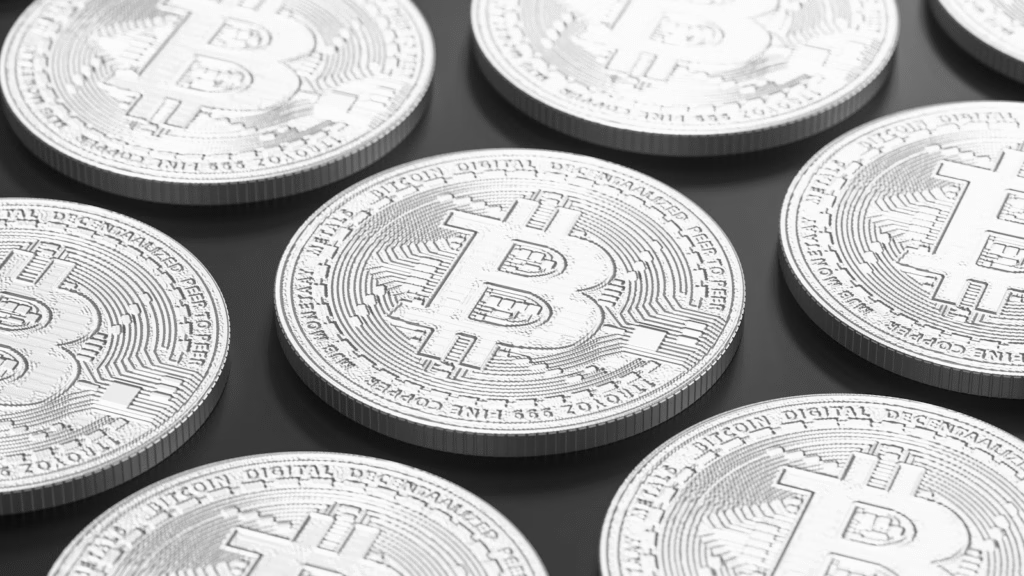
What This Means for Crypto’s Future
If Deutsche Bank’s prediction plays out, we’re looking at bitcoin becoming a mainstream financial instrument used by the world’s most conservative institutions. That’s a massive validation for crypto.
The convergence of three trends makes this possible: accelerating de-dollarisation, declining bitcoin volatility, and improved regulatory clarity. Combined with ongoing geopolitical instability and inflation concerns, central banks have real incentives to diversify into digital assets.
Whether it happens exactly by 2030 remains to be seen, but the trajectory is clear.
Bottom Line
Central banks adding bitcoin to reserves alongside gold isn’t science fiction anymore—it’s a serious possibility backed by major financial institutions. As the dollar’s dominance weakens and bitcoin matures as an asset class, the crypto could become a standard part of how countries protect their wealth.
Want to stay ahead of shifts like this? Keep watching how central banks diversify their reserves—it’s where the next big financial trends emerge.
FAQ
Q1: Will central banks actually start buying bitcoin?
A: Deutsche Bank predicts it’ll happen by 2030, though several major central banks currently prohibit crypto reserves. As regulations evolve and volatility decreases, institutional barriers may fall.
Q2: Why are central banks moving away from the US dollar?
A: Countries are diversifying reserves to reduce dependence on any single currency, especially amid geopolitical tensions and concerns about US economic policy. China’s $57bn reduction in Treasury holdings signals this trend.
Q3: How does bitcoin compare to gold as a reserve asset?
A: Both offer inflation hedges, scarcity, and low correlation with traditional assets. Bitcoin adds digital portability but currently suffers from higher volatility—though that gap is closing as adoption grows.
Q4: What needs to happen for bitcoin to become a reserve currency?
A: Continued reduction in volatility through deeper liquidity, clearer regulatory frameworks globally, and greater institutional trust in crypto’s stability and transparency.
Q5: Could this prediction be wrong?
A: Absolutely. Regulatory barriers, technological risks, or continued volatility could prevent widespread central bank adoption. Deutsche Bank’s timeline is speculative, not guaranteed.
DISCLAIMER
Effective Date: 15th July 2025
The information provided on this website is for informational and educational purposes only and reflects the personal opinions of the author(s). It is not intended as financial, investment, tax, or legal advice.
We are not certified financial advisers. None of the content on this website constitutes a recommendation to buy, sell, or hold any financial product, asset, or service. You should not rely on any information provided here to make financial decisions.
We strongly recommend that you:
- Conduct your own research and due diligence
- Consult with a qualified financial adviser or professional before making any investment or financial decisions
While we strive to ensure that all information is accurate and up to date, we make no guarantees about the completeness, reliability, or suitability of any content on this site.
By using this website, you acknowledge and agree that we are not responsible for any financial loss, damage, or decisions made based on the content presented.

